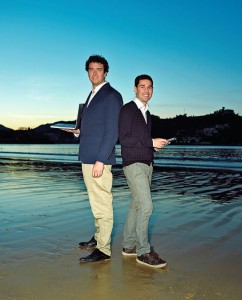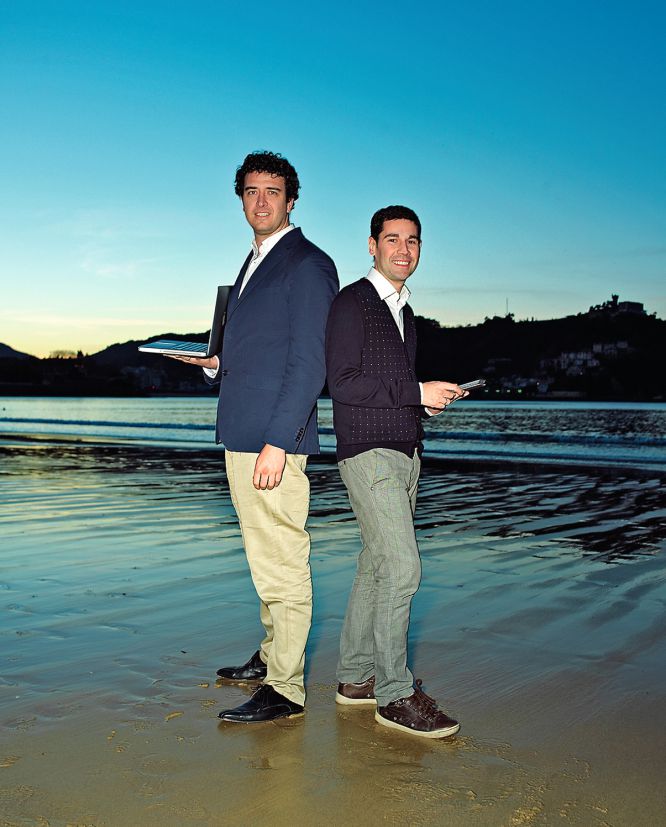It all started back in England. When I was 18, I went there as a representative of the rare species of male au pairs. One day, we had this little survey on our au pair Facebook group – which are the most irritating examples of English pronunciation? Greenwich? Worcestershire? Southwark? I had never heard of Southwark before, so I opened a popular search engine, entered “Southwark pronunciation” and clicked on the first result to show up. It was a Spanish website called Forvo.com. I clicked on the play button and when the recording ended, I had learned the pronunciation of a new word. The next day, when I was teaching myself Swedish – I had only begun learning it a few days earlier – I returned to this website. “Kötbullar”. And again. “Sjuksköterska”. And again.
Forvo, I learned, is the biggest pronunciation dictionary online. With more than 2.3 million pronunciations available in more than 300 languages as of now, you can pretty much look up pronunciations for almost any word in the major languages. Some sections, like the English section, have most of their core vocabulary pronounced by users from different regions of the world. That way, one can even listen to pronunciations of a certain accent, like for example British and American English. If a word is not in the database already, users can request a pronunciation for it. A native speaker can then record a 2.5-seconds-long clip with their pronunciation of the word.
 Soon enough, I wanted to be part of this project. I registered, started adding words that were missing and pronounced the ones that other users had requested in my mother tongue. A couple of days later, I was asked if I wanted to oversee the German section. I agreed. Now I am one of a few hundred volunteers helping the users out and cataloguing new additions, scanning them for spelling mistakes and other infringements. It is not only my love for languages that keeps me there, though. I have the firm belief that websites like this one facilitate the exchange of thoughts and help people of different cultures achieve a better understanding of each other.
Soon enough, I wanted to be part of this project. I registered, started adding words that were missing and pronounced the ones that other users had requested in my mother tongue. A couple of days later, I was asked if I wanted to oversee the German section. I agreed. Now I am one of a few hundred volunteers helping the users out and cataloguing new additions, scanning them for spelling mistakes and other infringements. It is not only my love for languages that keeps me there, though. I have the firm belief that websites like this one facilitate the exchange of thoughts and help people of different cultures achieve a better understanding of each other.
Of course, crowd-sourced projects like Forvo have their limitations. Their success largely depends on their users and the pronunciations they provide, both in terms of quantity and quality. A website like this can only be as good as its users. While Forvo provides the framework for over 300 languages, there are many that do not feature more than a couple pronunciations and in some others, there are hundreds of words left unpronounced simply because there is no one there to help out.
During my time at Forvo, I have met many new people. American historians with an interest in towns located on former German territory; Japanese waiters studying the names of wines and vineyards for their upcoming sommelier exam; Chinese engineering students preparing for a professional life in Germany. Also, I have seen the project grow and prosper. In 2013, Forvo was even named one of the top 50 websites in TIME magazine. Now, I was able to conduct an interview with Israel Rondón, one of the two founders of the website.
Q: What did you do before Forvo?
A: The same as I do now. I do websites and online projects, mainly design and concept.
Q: What gave you the idea to start with Forvo? When was that?
A: Forvo started as an idea in 2007, I took two other friends, who were developers, to help me in the project. There wasn’t a real motivation behind it, but with hindsight, we can find many examples and conversations where the pronunciation topic was in. From “Bach” and “Goethe”, to “Flickr” and “Mozilla”.
Q: What makes Forvo such a unique project?
A: In the beginning it was the quality, only real human voices. Now also the quantity, with about 2.5 million pronunciations in more than 300 languages.

Q: What are the limitations of Forvo?
A: Our motto is quite naive, “all the words in the world, pronounced”. We were neither language experts back then, nor are we now, so there are a lot of things done based on our language experience, which in a global context is quite small. We have problems with many, many languages just because we do not know the basics of them. Hope to fix some of those problems soon.
Q: Do you have any plans for the future of Forvo? In which areas would you like to expand?
A: We are creating tools around Forvo. Forvo is already the biggest archive of pronunciations, but we are expanding it through mobile applications and overall sharing it with other big projects. We are partners with the no.1 dictionaries in China and Russia plus another big player in the US. Maybe you are using one of their apps, but the audio is from Forvo.
Q: How is Forvo funded?
A: By its original founders. Nothing really exciting here. Forvo is now a sustainable project by itself but there are no people working full-time, just the founders with the help of hundreds of volunteers.
Q: Does Forvo cooperate with other companies or organisations? In which fields?
A: Apart from what I said before, we collaborate with local entities helping to preserve languages, like American native languages, African, or even in our Basque region.
Q: Do you think that Forvo also serves language preservation?
A: Sure, see my previous answer. People even ask us to add languages with only a few dozens of native speakers. Unfortunately, not all of them are getting pronounced. But we are happy to support them.
Q: What do you think about the future of crowd-sourced projects?
A: I personally see them in very good health. There are mainly two big things for the next years: Internet of Things and Collaborative consumption (AirBnB, Uber,…) They don’t have to be on opposite sides, but I will for sure be more interested in the second group.
By Michael Schätzlein
Image credit:
Picture 1 & 2: Forvo Media SL, with permission from the authors










